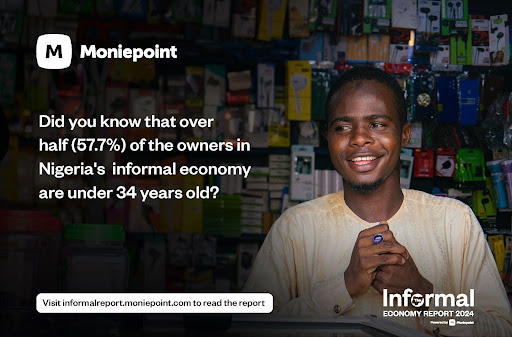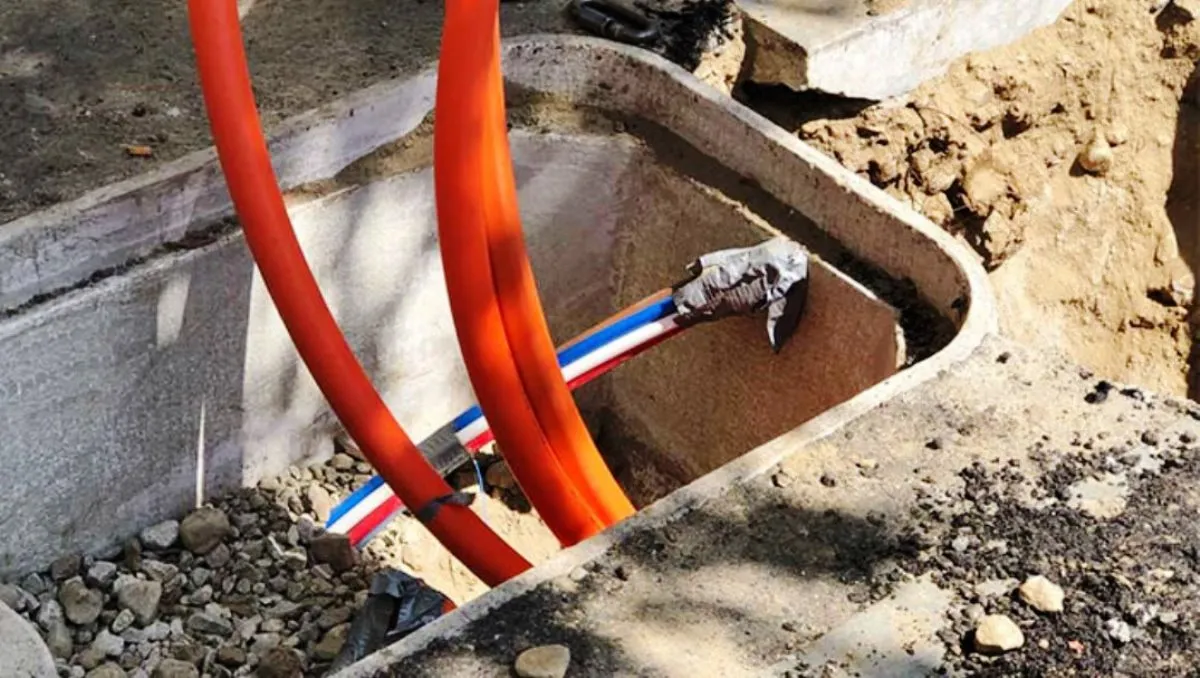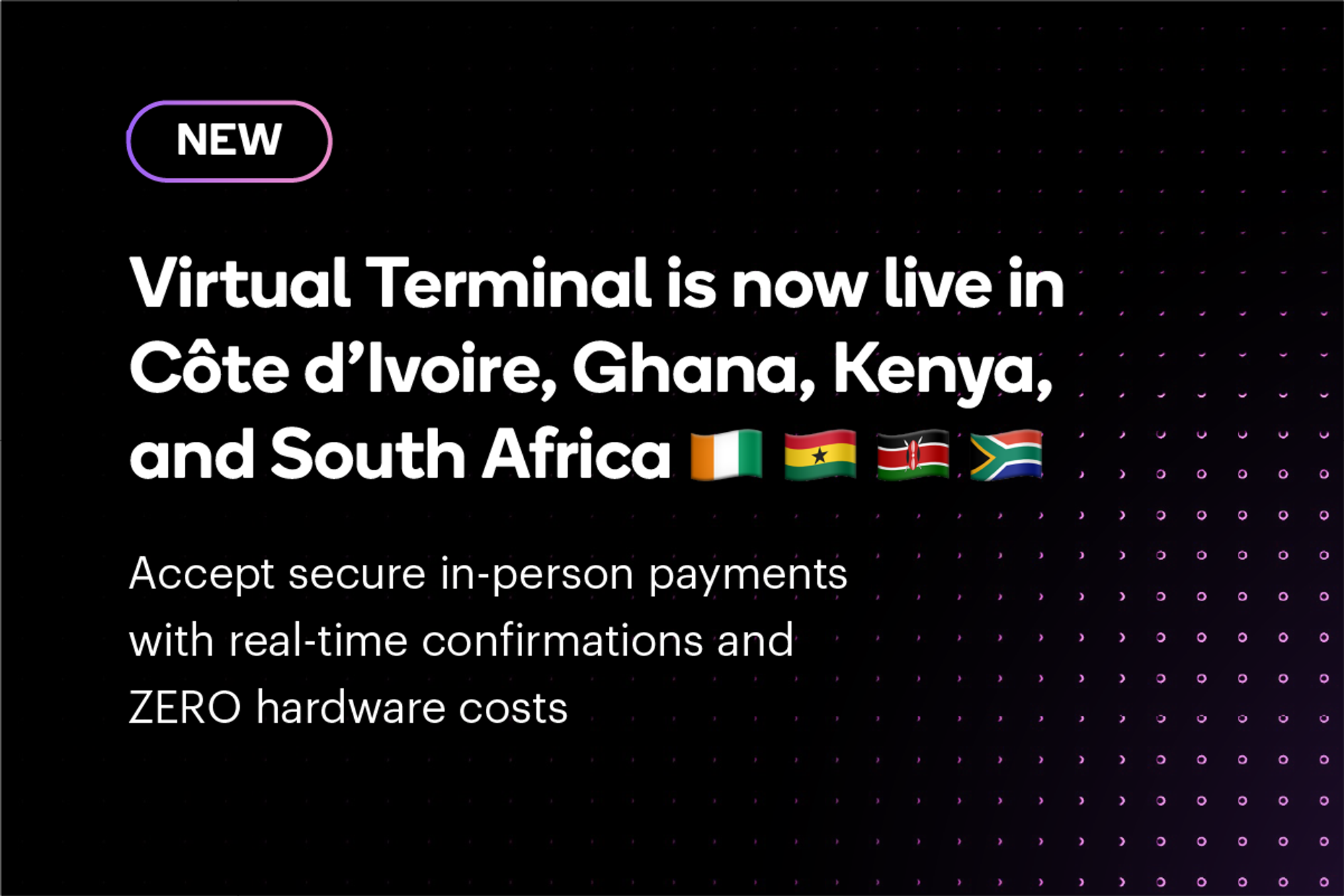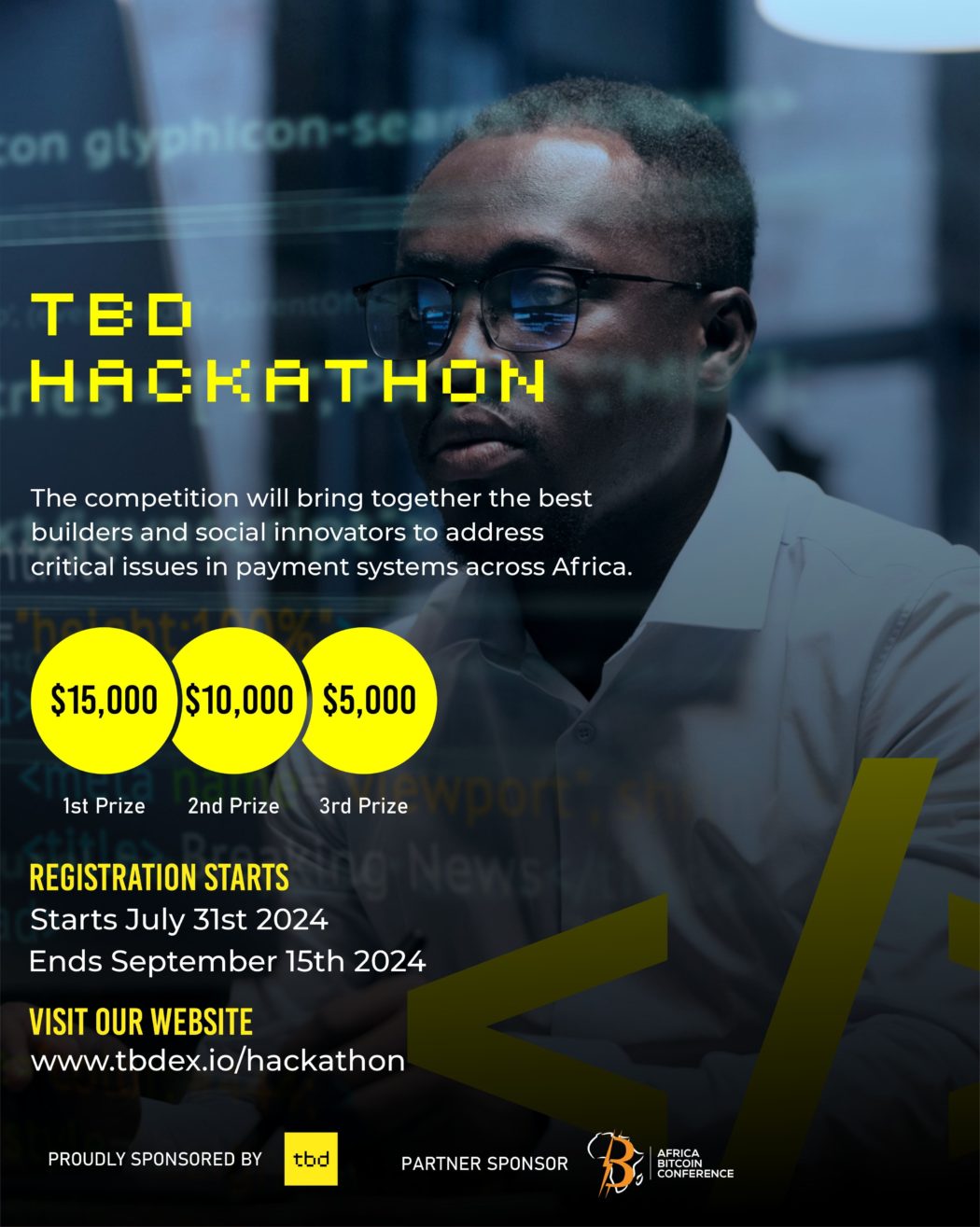

Happy Salary Week ☀️
If you’re still twiddling your thumbs about attending Moonshot 2024, here’s one review from a 2023 guest.

This year’s Moonshot promises more content tracks, sessions, mixers, and the most audacious thinkers, doers, and investors in African tech, working on everything from fintech to commerce, renewable energy, climate change, tech policy, AI, telco, cloud and more.
Save a seat at Moonshot 2024. Get tickets here.

Internet
Safaricom asks Kenya to limit Starlink’s operations

Kenya’s leading telecommunications company, Safaricom, has expressed strong opposition to the Communications Authority of Kenya (CA) granting independent licenses to satellite internet providers like Starlink. In a letter to the regulator, Safaricom outlined its concerns about the potential risks and negative consequences of such a move.
The company argued that allowing satellite providers to operate independently could lead to illegal service provision, harmful interference with existing mobile networks, and compromised national security.
Already, Starlink’s appeal is growing among users in Kenya. The ISO offers cheaper subscription plans and stronger internet connectivity to these users. The average Kenyan spends about $12-15 monthly on internet subscriptions. That amount will get them 27 GB worth of data on the Airtel network and 17GB on Safaricom. However, Starlink offers a 50GB bundle for $10.
Starlink has already increased its user count tenfold this year alone. The ISP’s hardware discount and $15 monthly kit rental also puts it in pole position to acquire more customers.
This growing popularity has raised concerns for Safaricom, which has invested heavily in its existing network infrastructure. To mitigate these risks, Safaricom proposed that satellite providers should only be allowed to operate in Kenya under the umbrella of existing local licensees, such as itself. This approach, according to the company, would ensure better regulation, prevent harmful interference, and protect the interests of both local operators and consumers.
Safaricom’s opposition to independent satellite internet licenses highlights the ongoing debate about the future of internet access in Kenya. The company’s concerns about potential risks and negative consequences will likely influence the CA’s decision on whether to grant such licenses.
Read Moniepoint’s 2024 Informal Economy Report

Did you know that 57.7% of the business owners in Nigeria’s informal economy are under 34 years old? Click here to find out more about the demographics of Nigeria’s informal economy.
Global News
Stranded astronauts will return next year on SpaceX

If you have ever been stuck in an elevator, then you may be able to sympathise with veteran NASA astronauts Sunita Williams and Barry Wilmore who have been stuck in space for 2 months. While both astronauts have previously completed long-duration stays in space, their latest foray didn’t go as planned.
Both astronauts blasted off Earth in Boeing’s new Starliner spacecraft on June 5 for a test flight. However, technical issues—helium leaks and failure of some thrusters—on the spacecraft turned an eight-day trip into a 2-month one.
Williams and Wilmore eventually reached the International Space Station (ISS). However, the duo will have to wait an additional seven months on the ISS when the rival SpaceX Crew Dragon spacecraft comes to ferry them home in February 2025.
Before the flight—which was crucial to determine if the spacecraft would be used for routine flights—engineers at NASA and Boeing spent months trying to figure out and fix issues with the Starliner. The Starliner’s launch had been postponed multiple times for years due to technical challenges encountered during its development.
The latest technical glitch of the Starliner adds to a list of engineering issues Boeing has had to deal with this year alone. In March, flight controls of a United Airlines 737 jammed as the plane landed. A LATAM 787 Dreamliner flight from Australia to New Zealand plunged mid-air, injuring 50 passengers, who were thrown from their seats and into the plane’s ceiling. As Boeing looks to fix the Starliner, it can pick up lessons from rival SpaceX which has sent nine crewed flights to space for NASA.
Collect payments anytime anywhere with Fincra

Are you dealing with the complexities of collecting payments from your customers? Fincra’s payment gateway makes it easy to accept payments via cards, bank transfers, virtual accounts and mobile money. What’s more? You get to save money on fees when you use Fincra. Get started now.
Economy
Japan looks to invest in Nigerian startups

Nigerian tech startups are attracting foreign investors, particularly from Japan, due to three key factors: a young, tech-savvy population, massive market potential with over 200 million people, and its nascent startup ecosystem providing room for technology innovation and business expansion.
In the last 5 years, Nigerian startups have received over $4 billion. Japan, a long-time investor in Africa through the Tokyo International Conference on African Development (TICAD) initiative, is interested in these Nigerian startups. This move will strengthen business and economic ties with Nigeria, according to Foreign Affairs Minister Kamikawa Yoko.
Unlike Chinese companies that prefer to expand into Nigeria, Japanese involvement in Nigeria’s tech ecosystem has primarily been through corporate venture capital (CVC), with companies like Toyota Tsusho and Mitsubishi Corporation leading the way. Additionally, Japanese VC firms such as Verod Kepple have successfully invested in Nigerian startups. In 2022 alone, Japan invested $726 million in Africa.
Its investment strategy in Nigeria focuses on providing patient capital and enhancing the existing bilateral trade relationship. Following this announcement, Nigeria will likely be seeing more capital inflow from Japan into the country. Chinese companies too have shown interest in investing in Nigeria.
Paystack Virtual Terminal is now live in more countries

Paystack Virtual Terminalhelps businesses accept secure, in-person payments with real-time WhatsApp confirmations and ZERO hardware costs. Enjoy multiple in-person payment channels, easy end-of-day reconciliation, and more. Learn more on the Paystack blog →
Insights
Africa’s data privacy concerns
As the wave of tech disruption sweeps across Africa, the number of people with internet access is increasing — at the rate of 39.7% as of 2021. However, this rise in connectivity also brings the risk of data breaches and compromised privacy without users’ consent. For example, according to Surfshark’s global study, Nigeria ranked 32nd among the most breached countries in Q1 2023, with 82,000 leaked accounts.
Africa’s status as a huge market for tech innovation has led global tech firms to exploit the weak data protection laws of African countries to build extensive databases for advancing their products and services. Unfortunately, many African countries lack comprehensive legal frameworks for data protection, leaving the personal information of internet users as a valuable commodity in the global market. TechHive Advisory‘s report reveals that out of the 54 countries in Africa, only 35 have privacy laws, and among them, only 25 have data protection authorities.
However, there is an increasing awareness among African countries about the risks and consequences of data breaches. Dorcas Tsebee, a lawyer specializing in data privacy, believes while Africa has made tremendous progress in the data protection space, it has not stopped privacy concerns as they are bound to happen. “What really matters is the approach of organizations to remediate whatever breach that has occurred. Organizations need to take data privacy more seriously, especially in countries with data protection laws because there are increased efforts by the government to track these breaches, investigate and issue sanctions where appropriate,” she said.
There is no better time for African governments to intensify the legislation and implementation of data protection laws in their countries. As this contributes to the legal foundation of Africa’s digital economy, the continent needs proactive governments and Data Protection Authorities (DPAs) to enforce the regulations and issue sanctions. This will also ensure strict compliance by firms in the tech industry and avoid data breaches to address emerging digital risks. As Africa moves further in its era of rapid digitalization, countries must follow best international practices to improve their laws and safeguard citizens’ data responsibly.
Get all our reports here and watch videos from our events. Got any research requests? Send them to us here.
Win big in the TBD Hackathon

Calling all African innovators! Join the TBD Hackathon and revolutionise payment solutions in Africa. Do you have a passion for building solutions and shaping the future of finance? Build a payment app with tbDEX & win up to $15,000 in BTC! Apply by Sept 15
CRYPTO TRACKER
The World Wide Web3
Source:

|
Coin Name |
Current Value |
Day |
Month |
|---|---|---|---|
| $60,660 |
– 0.19% |
– 9.41% |
|
| $2,638 |
+ 0.53% |
– 23.53% |
|
|
$0.42 |
+ 2.65% |
– 27.96% |
|
| $144.51 |
+ 1.69% |
– 16.64% |
* Data as of 06:20 AM WAT, August 23, 2024.
Events
- The Central Bank of Nigeria is conducting a survey to gather insights from fintech operators on their scope of activities, key issues, and challenges facing the industry. Your perspective as an operator is important to this study. Please take a moment to complete this survey.
- We’re excited to announce our partnership with Wimbart the second edition of their pioneering pan-African research publication, “Startup Performance Reporting in Africa”. This report will shed light on the intricacies of investor relations within the African tech ecosystem. If you’re a founder, take a couple of minutes to share some key insights with us by filling out this survey.
- The Africa Prize for Engineering Innovation is open to African innovators creating engineering solutions to local challenges. Innovators from sub-Saharan Africa should pitch viable engineering products or services that will have social or environmental benefits to the continent. Apply for the chance to get up to $25,000 in funding.
- The Future of Capitalism Tech Startup Competition is offering $1 million to one lucky tech startup that can transform how businesses today operate. If your tech can save costs, boost efficiency, increase productivity or customer satisfaction, then apply by September 30 for a chance to win.

Written by: Faith Omoniyi, Stephen Agwaibor & Emmanuel Nwosu
Edited by: Olumuyiwa Olowogboyega & Timi Odueso
Want more of TechCabal?
Sign up for our insightful newsletters on the business and economy of tech in Africa.
- The Next Wave: futuristic analysis of the business of tech in Africa.
- Entering Tech: tech career insights and opportunities in your inbox every Wednesday at 3 PM WAT.
- TC Scoops: breaking news from TechCabal
P:S If you’re often missing TC Daily in your inbox, check your Promotions folder and move any edition of TC Daily from “Promotions” to your “Main” or “Primary” folder and TC Daily will always come to you.






















